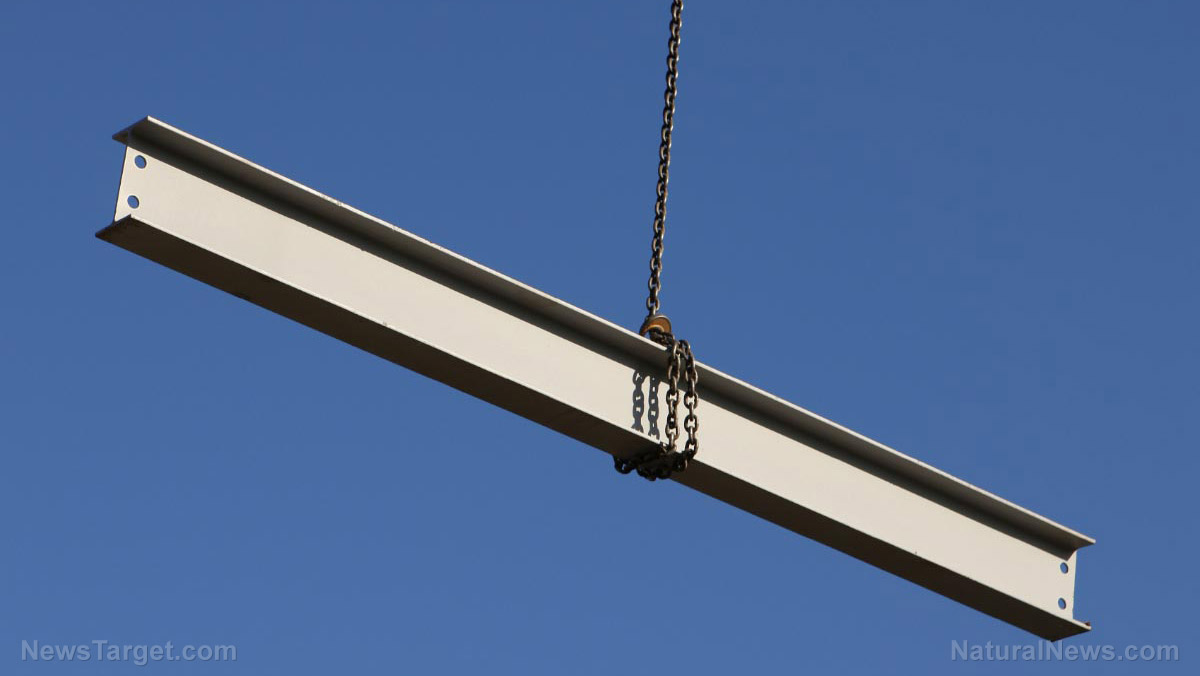Trump announces 25% tariffs on steel and aluminum to protect U.S. industries
By isabelle // 2025-02-10
Tweet
Share
Copy

- President Trump announces 25% tariffs on steel and aluminum imports to protect U.S. industries.
- Tariffs are part of Trump’s broader strategy for fair trade, with reciprocal tariffs planned to address imbalances.
- U.S. steel and aluminum stocks surge, with predictions of increased domestic manufacturing and job creation.
- Trump cites national security concerns, arguing that domestic production is crucial for defense and infrastructure.
- The move garners criticism from trading partners but is seen as a win for American workers and businesses.
A push for fair trade
The announcement underscores Trump’s long-standing commitment to protecting American industries through tariffs, a policy he championed during his first term. The president also revealed plans to introduce “reciprocal tariffs” later in the week, targeting countries that impose high duties on U.S. goods. “If they are charging us 130 percent and we’re charging them nothing, it’s not going to stay that way,” Trump said. He argued that reciprocal tariffs are the only fair way to ensure no country is disadvantaged in trade relations. The move has already sparked optimism among U.S. steel and aluminum producers. Shares of major American steel companies, including Cleveland-Cliffs, U.S. Steel, and Nucor, surged in pre-market trading following the announcement. Analysts predict the tariffs will drive investment in domestic manufacturing, creating jobs and bolstering the economy.Protecting national security and jobs
Trump’s decision to impose tariffs on steel and aluminum is rooted in national security concerns, as both metals are critical to infrastructure, defense, and transportation. The president has repeatedly argued that relying on foreign imports weakens America’s industrial base and leaves the country vulnerable. During his first term, Trump implemented similar tariffs, which led to a 35% decline in steel imports over the past decade. While aluminum imports have risen, the new tariffs aim to reverse that trend and encourage domestic production. The policy has drawn criticism from some trading partners, including South Korea and Germany, which fear the tariffs will hurt their exports. However, Trump has shown a willingness to negotiate, recently delaying tariffs on Canada and Mexico after both countries agreed to strengthen border security and curb illegal immigration.A win for American workers
The tariffs are expected to benefit American workers by revitalizing the steel and aluminum industries, which have struggled in recent decades due to foreign competition. By making imports more expensive, the policy incentivizes companies to source materials domestically, supporting local businesses and communities. As the tariffs take effect, the administration will monitor their impact on the economy and trade relationships. While some critics warn of potential price increases for consumers, supporters argue that the long-term benefits — job creation, industrial growth, and national security — far outweigh the short-term costs. President Trump’s decision to impose 25% tariffs on steel and aluminum imports marks a bold step in his effort to protect American industries and workers. By prioritizing fair trade and national security, the policy aims to strengthen the U.S. economy and reduce reliance on foreign imports. As the tariffs take effect, the focus will be on their ability to deliver tangible benefits for American workers and businesses, reinforcing the president’s vision of a stronger, more self-reliant nation. Sources for this article include: TheEpochTimes.com ZeroHedge.com APNews.com CNBC.comTweet
Share
Copy
Tagged Under:
market crash national security Trump aluminum big government risk products money supply pensions steel supply chain tariffs trade wars economic riot
You Might Also Like
Here’s why capital is fleeing Europe… And why the climate scam is to blame
By News Editors // Share
Recent News
Afghan migrant arrested in Germany after fatally stabbing female boss
By lauraharris // Share
From lifesaving to life-threatening? Study finds CT scans could be causing cancer
By avagrace // Share
FDA moves to ban children's fluoride supplements amid growing health concerns
By isabelle // Share











